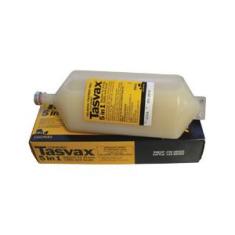The Department of Primary Industries (DPI) is reminding livestock producers that now is the time to vaccinate their flocks and herds for clostridial diseases such as pulpy kidney, blackleg and black disease.
| DPI District Veterinary Officer Jeff Cave said because little could be done to treat an animal affected by these diseases, the emphasis should be on prevention. “No vaccine is 100 per cent effective; however a strategic vaccination program will prevent a disease outbreak and preventable losses,” Dr Cave said. “The key to prevention is to ensure that cattle and sheep are adequately protected through vaccination. To be effective, vaccines need to be given strategically. “Most vaccines give up to 12 months of protection and should therefore be given as per the manufacturer’s recommendations, annually or other. “As with any vaccination program, adult cows and ewes should be vaccinated approximately one month prior to calving and lambing to give their calves and lambs maternal or passive immunity through colostrum." Dr Cave said passive immunity lasted approximately six weeks. After this, calves and lambs must be vaccinated twice to gain active immunity. |  |
“This should be carried-out by two injections, four to six weeks apart.
”The first vaccination is often given at marking time and the second vaccination is given four to six weeks later.”
A feature of the enterotoxaemia vaccine is that the duration of immunity that it provides may be quite short. It may only give three or four months of protection.
Dr Cave said therefore a booster dose should be given strategically before a high-risk period i.e. before the beginning of spring.
For further specific advice regarding your flock or herd’s vaccination program please contact your local veterinarian or DPI Veterinary Officer or Animal Health Officer. In NSW, contact your local Livestock Health and Pest Authority.



